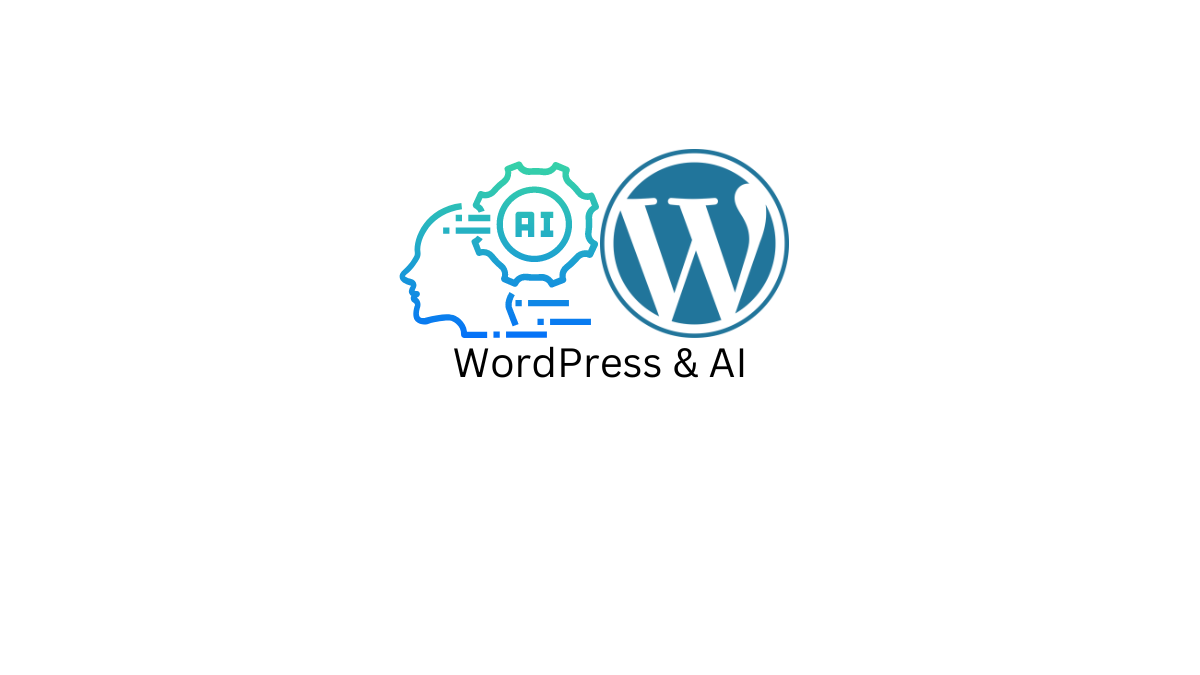Revolutionizing Web Development: WordPress and AI Integration

In the ever-evolving landscape of web development, WordPress has long been a preferred choice for creating and managing websites. Its user-friendly interface and extensive plugin ecosystem have empowered millions of users to build and maintain their online presence. However, as technology advances, so does the demand for innovative solutions. Enter artificial intelligence (AI), a disruptive force that's reshaping industries across the board, including web development. In this article, we will explore how WordPress is harnessing the power of AI to enhance user experiences, improve website functionality, and streamline content management.
Understanding Artificial Intelligence
Before delving into the ways WordPress is integrating AI, it's essential to understand what AI is and its relevance to web development.
AI refers to the simulation of human intelligence in machines that are programmed to think, learn, and make decisions. It encompasses various subfields, such as machine learning, natural language processing, and computer vision. In web development, AI can be applied to automate tasks, analyze data, and enhance user interactions.
WordPress and AI Integration
-
Content Generation and Personalization: AI-driven plugins and tools now allow WordPress users to generate high-quality content automatically. These AI content generators use machine learning algorithms to analyze existing content and produce coherent articles, making it easier for website owners to maintain a regular posting schedule.
Additionally, AI can personalize content based on user behavior and preferences. By analyzing user interactions and data, WordPress websites can provide tailored recommendations, improving user engagement and satisfaction.
-
Chatbots and Customer Support: WordPress websites can integrate AI-powered chatbots to provide immediate responses to user queries. These chatbots can answer common questions, assist with navigation, and even collect user information for future interactions. This not only enhances user experience but also frees up valuable human resources for more complex tasks.
-
SEO and Content Optimization: AI can assist in optimizing website content for search engines. Plugins like Yoast SEO and RankMath leverage AI algorithms to analyze content and suggest improvements for better search engine rankings. This ensures that websites are more discoverable and attract a larger audience.
-
Security Enhancements: WordPress websites often face security threats such as brute force attacks and malware infections. AI-based security plugins can continuously monitor website traffic and identify unusual patterns or potential threats. This proactive approach helps in protecting websites from cyberattacks.
-
Image and Media Enhancement: AI can also be used to improve media content on WordPress sites. Image recognition technology can automatically tag images, making them more searchable and accessible. Additionally, AI-powered tools can enhance the quality of images and videos by applying filters, resizing, and optimizing file sizes for faster loading times.
-
User Behavior Analysis: Understanding user behavior is crucial for improving website performance. AI tools can analyze user interactions and provide insights into which content is most engaging, where users drop off, and what can be done to increase conversion rates. This data-driven approach helps in making informed decisions for website optimization.
Challenges and Considerations
While AI integration into WordPress offers numerous benefits, there are some challenges to consider:
-
Data Privacy: Collecting and using user data to personalize experiences must be done with utmost transparency and respect for privacy regulations, such as GDPR and CCPA.
-
Accuracy: AI algorithms are only as good as the data they are trained on. Ensuring accurate results requires high-quality data and ongoing monitoring.
-
Costs: Implementing AI solutions can be costly, both in terms of initial investment and ongoing maintenance.
-
User Acceptance: Users may be cautious about interacting with AI-driven systems, so it's essential to provide clear information and options for human support when needed.
Certainly, let's continue exploring the impact of AI integration in WordPress:
-
E-commerce and Recommendations: For WordPress websites that operate e-commerce stores, AI can play a crucial role in boosting sales. AI algorithms can analyze user browsing and purchasing history to provide product recommendations. This personalized approach can significantly increase the likelihood of conversions and improve customer satisfaction.
-
Multilingual Support: AI-driven translation plugins can automatically translate website content into multiple languages, making your website accessible to a global audience. This feature is invaluable for businesses targeting international markets and can greatly expand your reach.
-
Predictive Analytics: AI can predict future trends and behaviors based on historical data. In WordPress, predictive analytics can help website owners make informed decisions about content creation, marketing strategies, and product offerings. This data-driven approach can give you a competitive edge in your niche.
-
A/B Testing and Optimization: A/B testing is a common practice in web development to compare two versions of a webpage and determine which one performs better. AI can automate this process by analyzing user interactions and suggesting changes in real-time. This iterative optimization leads to better user experiences and higher conversion rates.
-
Voice Search Integration: With the increasing prevalence of voice-activated devices like Amazon Echo and Google Home, optimizing your WordPress website for voice search is becoming crucial. AI-powered voice recognition technology can help your site understand and respond to voice queries, making it more user-friendly and accessible.
-
Automated Email Marketing: AI-driven email marketing tools can analyze user behavior and send personalized email campaigns. These tools can segment your audience, tailor content, and determine the best times to send emails for maximum engagement and conversion rates.
-
Content Curation: AI can assist in curating relevant and trending content for your WordPress site. It can scan the web for news and articles related to your niche and automatically publish or share them, keeping your audience informed and engaged.
-
Performance Optimization: AI-powered performance optimization plugins can continuously monitor your website's speed and responsiveness. They can identify and fix issues that may be slowing down your site, ensuring a smooth and fast user experience.
-
Data Analysis and Insights: AI can sift through vast amounts of data and generate actionable insights. WordPress users can leverage AI to understand their audience better, refine their content strategies, and make data-driven decisions for website improvement.
- Web Development
- Art
- Causes
- Crafts
- Dance
- Drinks
- Film
- Fitness
- Food
- Games
- Gardening
- Health
- Home
- Literature
- Music
- Networking
- Other
- Party
- Religion
- Shopping
- Sports
- Theater
- Wellness




